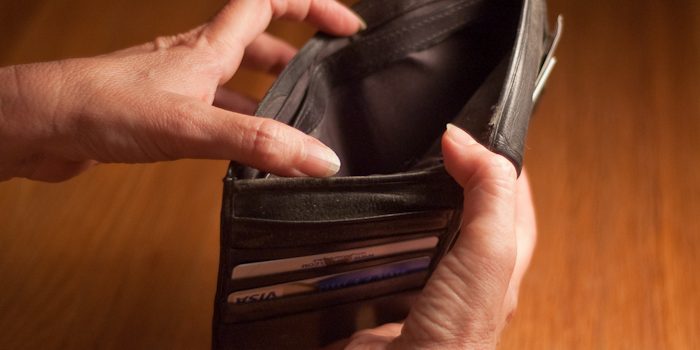Although there are a number of different types of bankruptcy within the United States Bankruptcy Code, most personal bankruptcy cases in Wisconsin fall under one of two: Chapter 7 and Chapter 13.
Before we start parsing out what each one is for specifically, let’s define exactly what bankruptcy is since the concept can be confusing for those who are new to the concept.
In short, bankruptcy is a way to get rid of debts using a process that is fair to your creditors (those you owe) in order for the debtor (you) to get a fresh start financially.
Chapter 7 does this by giving a trustee the power to collect your assets and sell those that are not exempt. After selling the assets, the proceeds are distributed to your creditors (those you owe) while the trustee takes a commission of the earnings.
Click here to learn more about which assets are exempt from liquidation here in Wisconsin.
Chapter 13 lets debtors with regular income propose a plan to reorganize their finances to pay some or all of what they owe their creditors over a three to five year period depending on how much they make and how much debt they have.
With Chapter 13, you’re able to keep your property, but spend more time paying back your debts. With Chapter 7, the process is more simple and straightforward, but you will lose your assets.
These are the core differences, however, there are a number of more complex distinctions you’ll need to understand in order to choose the best path for you.
Let’s compare and contrast Chapter 7 and Chapter 13 a little further:
Eligibility for Chapter 7 and Chapter 13 in Wisconsin
test
Chapter 7
Median Income and Means Test
If your average monthly household income over the past six months is under the median income limit for a household of your size, you’re eligible to file for Chapter 7. Click here for a list of the median income limits for households in Wisconsin as well as a helpful calculator.
If you’re over the limit, you’ll need to take the means test, which involves several steps. Click here for more information about the Wisconsin means test.
Chapter 13
Measuring secured versus unsecured debt
Unlike Chapter 7, Chapter 13 has no income requirement. To be eligible your unsecured debt must be below $383,175 and your secured debt must be below $1,149,525.
Click here to learn more about unsecured versus secured debts.
Common bankruptcy scenarios and recommendations
test
To help you decide which bankruptcy you should pursue, here are four of the most common situations debtors usually find themselves in when seeking options for bankruptcy.
Unemployed with few assets
Losing your source of income while dealing with a mountain of debt is the number one reason people seek bankruptcy to help them get back on their feet financially.
For those who don’t own a home, have few assets such as a car which may or may not be paid off in full, Chapter 7 is going to be the fastest and most effective to rid yourself of debt.
This is actually the most common kind of bankruptcy––also referred to as “no asset” bankruptcy.
Unemployed homeowners with a mortgage crisis
Many others find themselves with a home to pay off after losing their job or other source of income.
If the property value falls below the value of the loan, Chapter 7 is going to be the best option here. With the home’s value less than that of the lien against it, the homeowner has no equity so the house can’t be liquidated through the bankruptcy.
Chapter 7 will relieve them of having to repay unsecured debts, which makes monthly payments easier.
Unemployed homeowners with a lot of equity
In Wisconsin, the homestead exemption protects up to $75,000 in home equity and double that for couples filing jointly. If this doesn’t cover your home, you may lose it with a Chapter 7 bankruptcy. Through Chapter 13, you can keep the home by staying current on the mortgage while paying off your other debts with a repayment plan.
Employed homeowners who may be facing foreclosure or are late on their mortgage
If you own a home and have fallen behind on your mortgage payments, filing through Chapter 13 allows you a way to catch up on payments while eliminating your dischargeable debt through the repayment plan.
In this case, Chapter 13 can save you from being foreclosed on while also discharging debt from credit cards, medical expenses, and more.
Am I going to need a lawyer?
test
Depending on your circumstances, filing for bankruptcy can be very challenging. Experienced bankruptcy attorneys can provide a personal level of professional service complete with advice, assistance, and representation throughout the entire process.
While the situations I described above are some of the most common, everyone’s circumstances differ one way or another. To ensure you’re making the best decision and are completing the process correctly, retaining an experienced Beloit bankruptcy attorney can make all the difference when it comes to getting your finances back on track.
If you’re in need of bankruptcy assistance or have additional questions you’d like answered about which type of bankruptcy is right for you in Wisconsin, contact The Fitzgerald Law Firm today for a free consultation. We understand that meetings may not be possible during traditional business hours, so please let us know a time that works for you and we’ll do our best to accommodate you.








